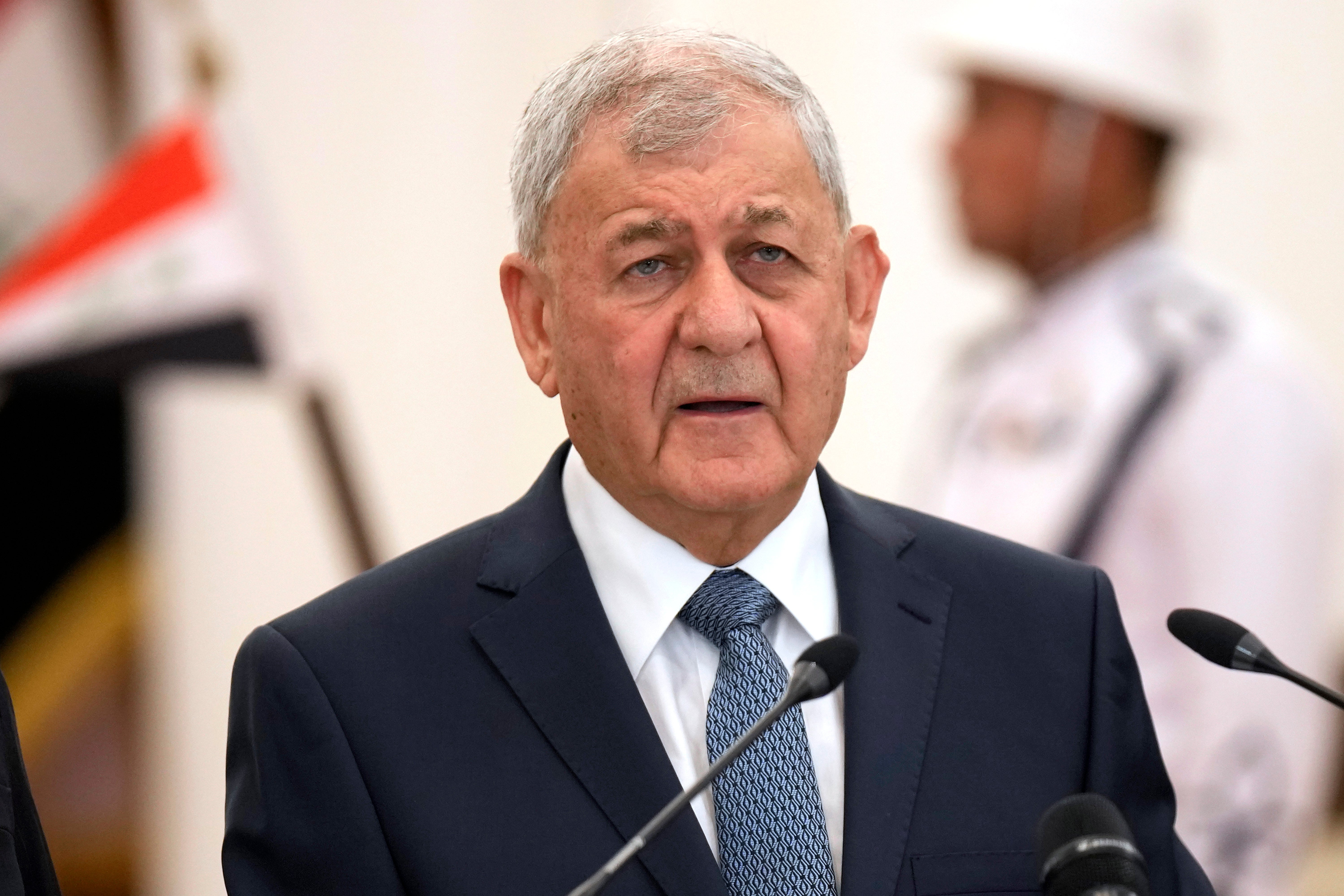Iraq's president will summon the Turkish ambassador over airstrikes in Iraq's Kurdish region
The Iraqi president says he will summon Turkey’s ambassador and hand him a formal letter of protest over recent Turkish airstrikes

Your support helps us to tell the story
From reproductive rights to climate change to Big Tech, The Independent is on the ground when the story is developing. Whether it's investigating the financials of Elon Musk's pro-Trump PAC or producing our latest documentary, 'The A Word', which shines a light on the American women fighting for reproductive rights, we know how important it is to parse out the facts from the messaging.
At such a critical moment in US history, we need reporters on the ground. Your donation allows us to keep sending journalists to speak to both sides of the story.
The Independent is trusted by Americans across the entire political spectrum. And unlike many other quality news outlets, we choose not to lock Americans out of our reporting and analysis with paywalls. We believe quality journalism should be available to everyone, paid for by those who can afford it.
Your support makes all the difference.The Iraqi president announced Tuesday that he will summon Turkey’s ambassador and hand him a formal letter of protest over recent Turkish airstrikes on Iraqi territory.
The official protest came a day after an airstrike on a military airport in Arbat, southeast of the city of Sulaymaniyah in northern Iraq’s semi-autonomous Kurdish region. Three members of the region’s counterterrorism force died and three of the Kurdish Peshmerga forces were wounded, according to local officials.
“Day after day, systematic military attacks on Iraqi territory, specifically in (the Kurdish) region, are escalating without military or security justification,” Iraqi President Abdul Latif Rashid said in a statement.
The “aggression targeted innocent civilians and military and security headquarters,” he said.
Rashid belongs to the Patriotic Union of Kurdistan (PUK) party, which has its main seat of power in Sulaymaniyah.
There was no immediate comment from Turkey.
The targeted airport had recently undergone rehabilitation to facilitate the training of anti-terror units affiliated with the PUK, one of the two often-competing main parties in the region.
Bafel Talabani, the party’s leader, in an official statement on Monday labeled the Turkish attack as part of a series of “conspiracies” aimed at jeopardizing Kurdistan’s security. He urged the federal government to “uphold its constitutional and national duties” in safeguarding Iraq’s territory and airspace, specifically in the Kurdish region.
Also on Monday, the Kurdistan National Congress, an umbrella organization of Kurdish groups and parties, said in a statement that one of its members was killed inside the group’s office in Erbil. It gave no details.
Turkey often launches strikes against targets in Syria and Iraq that it believes to be affiliated to the Kurdistan Workers’ Party, or PKK, a Kurdish separatist group that has waged an insurgency against Turkey since the 1980s.
Ankara considers the PKK and allied Kurdish groups in Syria and Iraq as terrorist organizations.
In April, Turkey closed its airspace to flights to and from Sulaymaniyah International Airport, citing an alleged increase in Kurdish militant activity threatening flight safety.
Days later, the Syrian Democratic Forces - Kurdish-led forces operating in northeast Syria that are allied with the United States but considered by Turkey to be an offshoot of the PKK - accused Turkey of launching a strike on the airport when SDF commander Mazloum Abdi was at the site. Abdi was unharmed.
Also on Tuesday, Iraqi officials announced that they had carried out an agreement to disarm members of Iranian Kurdish dissident groups based in northern Iraq and to relocate their members from their current bases near the Iranian border. Iran has periodically carried out airstrikes on the groups’ sites on Iraqi territory.
A joint committee set up by the central government in Baghdad and the Kurdish regional government, said the bases had been “permanently evacuated” and their occupants “transferred to a place far from the border.”